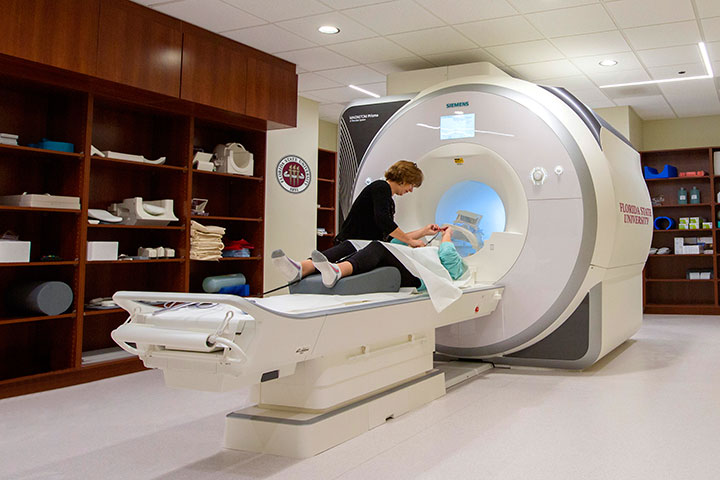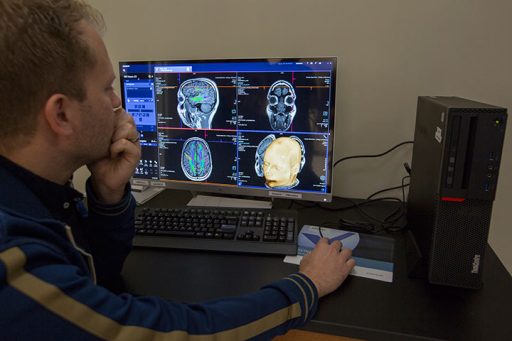
Florida State University researchers now have the state’s most advanced MRI machine at their disposal as they seek to unravel the mysteries of the brain and prevent the disorders that can impede its most basic functions.
The new functional magnetic resonance imaging (fMRI) machine, located in the College of Medicine, will allow FSU researchers from across the university to advance their exploration in areas such as psychological disorders, memory and cognitive control, and changes associated with aging.
“Our fMRI machine represents the latest and greatest in terms of MRI technology and opens up a whole new world of research possibilities for our faculty,” said FSU Vice President for Research Gary K. Ostrander. “The images you can capture with this machine are simply incredible. It is analogous to upgrading from an old Polaroid instant camera to one of today’s high-end digital offerings.”
Although fMRI technology is not new, it is rare given its expense, complexity and the significant expertise needed to maintain and operate the machines. FSU’s fMRI is now the most sensitive and sophisticated MRI machine currently in Florida.

“We have been working toward this purchase for a long time, and I am very pleased that we are seeing the culmination of that effort,” said College of Medicine Dean John P. Fogarty. “This joint project with the provost and the vice president for research will greatly enhance our research capabilities and add to our already strong focus on neuroscience and neurodegenerative disease discovery. It reflects well on our interdisciplinary focus and efforts to expand our knowledge of both behavioral and disease processes in the brain.”
MRI technology, which has been in use since the 1970s, uses strong magnetic fields, radio waves and field gradients to provide high-resolution images of the body. While traditional MRI machines provide images of the brain and its structure, they are unable to show brain activity.
FMRI machines solve this problem by detecting and mapping blood flow changes in the brain. When areas of the brain are in use, blood flow to those areas increases significantly, providing a reliable method to track brain activity and interaction.
Reinforcing FSU’s interdisciplinary research approach, the fMRI facility will be open to faculty from across campus, particularly those working in neuroscience-related fields of study.
“FSU has a focus and strength in neuroscience, and if we want to remain competitive in this field then we need to invest in the best technology,” Ostrander said. “In fact, over the last couple of years we have been able to recruit some outstanding faculty members based on the promise of this machine. Now that we have it, I cannot wait to see what they are able to accomplish with it.”








